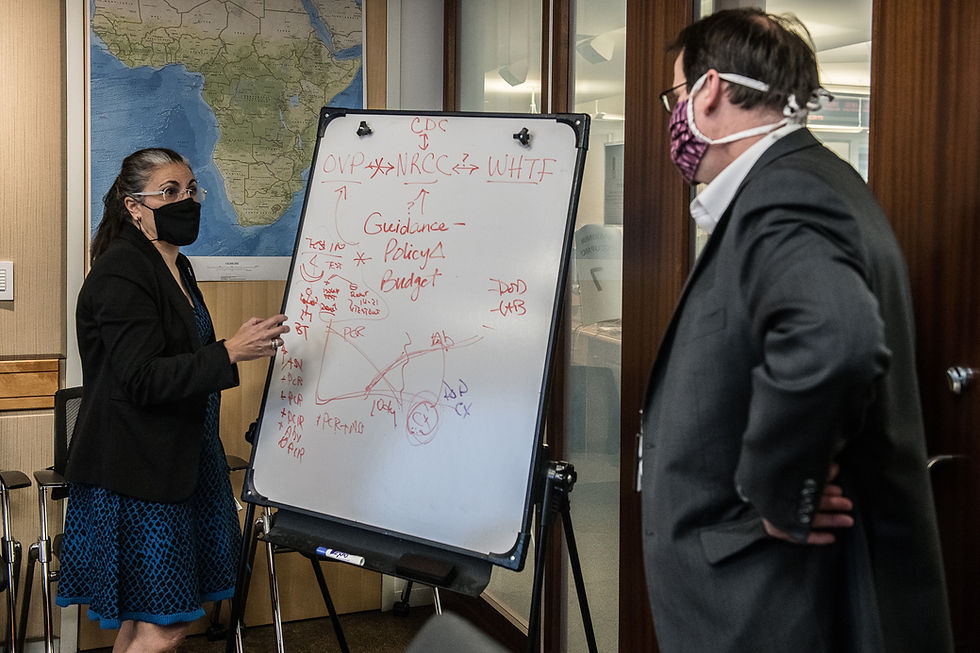Envisioning the Future as a Young Adult
- Danielle Feerst

- Mar 14, 2022
- 3 min read
The future… The future can be great and exciting but it is also full of unknowns which can be daunting! Undoubtedly, the future will hold great experiences, accomplishments, and memories but will also have several hardships. While it is true that most of what will happen in the future is out of our control, there are steps that can be taken to help guide us towards our goals. Planning out your future can motivate and guide your decision making process in an efficient and meaningful manner. Ultimately, by starting to envision your future, you will gain control and be able to create a strategy or “game plan” to accomplish your personal, professional, and social goals.

When someone asks, “Where do you want to be in 5 years?” it can be hard to answer. Not only is someone asking the physical location you hope to be but they are also asking what goals and lifestyle qualities you hope to have achieved. Even more difficult to answer and yet is arguably the most important, is how will you achieve those personalized goals?

One of the best ways someone can guide their future is by utilizing a Vision Board. Vision boards come in all forms. Some prefer to use a combination of words and pictures (similar to a collage), while others prefer to only write. When creating a Vision Board, it is common for people to use a whiteboard, paper journal, electronic journal, poster board, or Google Slides. The key is to have a final product that can be saved and referred back to overtime. Of course, with our experienced iElevate team, we are able to adapt and find a medium that is individualized for your needs.
Caroline Campione, an iElevate Peer Mentor recently utilized the Vision Board Technique with a client. Caroline wrote:
“Utilizing The Vision Board Technique was extremely beneficial for my client in several ways. It was a great exercise to allow for him to look interpersonally and to process what he wanted not only currently, but also into the future. After I facilitated the writing of his “wants,” we were able to look at the “how” or ways/ steps to reach his goals. In addition, The Vision Board Technique is a beneficial way to address and improve a client’s confidence, emotional intelligence, and executive functioning skills. Improving these skills through utilizing The Vision Board Technique, clients, parents/ caregivers, and support team members have tangible goals to work towards rather than working towards a broad or general goal of “independence.” By having everyone involved on the same page and supporting the client towards the same goals, communication is more efficient and effective.”
Below is a basic outline of questions to help get your Vision Board started:
Where do I want to be in the next 5 years?
Physically?
Professionally?
Personally?
What type of Relationships do I value and want to have?
Friendships?
Family?
Romantic?
Professional?
What will my average day look like?
What will I do to bring meaning and joy into my life?
It is important to note that in order to answer these questions, further discussion will be needed so that goals and strategies can be fully recognized.
If this blog sparked questions, concerns, or resonated with you, please reach out to Danielle Feerst OTR/L by clicking here to book a FREE 30 minute consultation. No matter where you are in your journey or what your goals are, Danielle Feerst OTR/L can be a great resource. Danielle Feerst OTR/L has several years of experience working with young adults who are working towards a meaningful life. Along with her Peer Mentors, Danielle and the rest of iElevate have several other ideas, experiences, and expertise on working with young adults with social emotional learning differences to promote living a fully engaged life. Our team works closely to personalize interventions to fit your unique situation. We do this to empower clients to reach their full potential. In addition, you can connect with us on our Facebook, Instagram, and LinkedIn. If you have any ideas for future blog posts, feel free to message us on any of our social media accounts or email us at ielevatesc@gmail.com .
Click here to read our previous “planning” blog posts on Transition Planning, Buying or Renting a House/ Apartment, and Maintaining a Meaningful College Social Life.
Written by Madison Gies, Peer Mentor/ Coach, OTDS
.png)



Comments